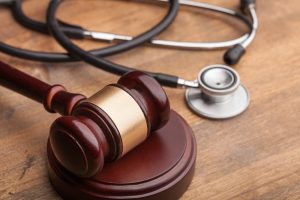 Pursuing a personal injury case is often the most beneficial method of securing compensation from someone who causes an accident. The process is straightforward but isn’t necessarily simple. You must take specific steps to prepare the case and prove the other person or a company is liable for your injury.
Pursuing a personal injury case is often the most beneficial method of securing compensation from someone who causes an accident. The process is straightforward but isn’t necessarily simple. You must take specific steps to prepare the case and prove the other person or a company is liable for your injury.
Sufficient evidence is critical. You must show that your injury occurred during the incident and someone else is at fault. For example, providing copies of your medical records and securing video surveillance footage can establish liability.
Below is a checklist you should follow while handling your personal injury case to improve your chance of a favorable result and recover the compensation you deserve.
Understand What Losses Might Be Compensable
You should know the value of your case before demanding compensation. The money you receive should compensate you for your:
- Pain and suffering
- Hospital stays, ambulance services, prescriptions, and other medical expenses
- Mental anguish
- Lost wages
- Lost earning capacity
- Damage to personal property
If you don’t demand the appropriate financial award, you will likely have to pay for some of your losses out of pocket.
Obtain Official Evidence
 You should report what happened immediately after an accident to obtain an official report.
You should report what happened immediately after an accident to obtain an official report.
For example, if you’re in a car crash, call 911 and wait for an officer to arrive at the scene. They can investigate and create an accident report to file with the Department of Kentucky State Police.
Get a copy once the report is available. It contains details that might help your case. If the investigating officer determined the other driver was at fault, establishing liability might be easier.
You can also ask someone to create an official report of the incident in other situations. Whether you fell on someone’s dangerous property or developed an illness from exposure to toxic substances at work, notify someone and obtain a copy of their report for your records.
Request Copies of Your Medical Records
Maintain copies of your medical records while getting treatment for your injury. You should keep every image, chart, note, lab result, and other documentation related to your treatment. Review your records to ensure your doctors include necessary information, such as the type of injury, treatment plan, and progress during recovery.
Medical records are essential in personal injury cases. They show a person’s injury and its effects on daily life. Speak to your medical providers about physical or mental limitations from the injury and ensure they include that information in your medical records.
Locate Visual Evidence
Visual evidence is challenging to dispute. You can take pictures of the accident scene to demonstrate the severity. For example, take photos of the surrounding area, vehicle damage, and debris if you are in a car accident. If you slip at a restaurant, you can take pictures of a cracked sidewalk or wet floor that caused your fall.
Footage from a nearby security camera can also help your case. It might show the at-fault party’s actions in the moments before the incident.
Collect Financial Documents
 Financial documents show various aspects of a personal injury case. You should collect anything documenting the expenses associated with the incident, such as:
Financial documents show various aspects of a personal injury case. You should collect anything documenting the expenses associated with the incident, such as:
- Receipts from prescription medication
- Bank statements showing necessary out-of-pocket expenses, such as mileage traveling to and from doctor’s offices or lodging if the injury occurs while on vacation
- Medical bills from treating the injury
You can document your lost wages with a W-2, paycheck stubs, or a lost wage report from your employer.
Obtain copies of relevant insurance policies. The type of policy you need will depend on the circumstances of the accident. For example, you can ask a property owner for their commercial liability insurance if the incident occurred on their property or a driver’s liability coverage if they caused a collision.
How to Get a Lawyer to Take Your Case
You should not pursue a personal injury case without a lawyer. You can schedule an initial consultation to discuss your case. It can be helpful to bring various documents to show the attorney, such as:
- Copies of your medical records and bills
- Detailed notes you took about the incident
- Pictures you took at the accident scene
- The names of your doctors, type of treatment, and treatment dates
- Police or incident report
- Financial documents relating to the incident
Sitting across from a lawyer might be intimidating. However, you should remember they are there to help. Personal injury attorneys dedicate their time to seeking justice for accident victims injured by the wrongdoing of others.
Explain what happened and show the documents you brought with you. Be respectful during your meeting and prepare for possible questions they might ask.
Injured in an Accident? Call Tamaki Law Now
Getting hurt in an accident that wasn’t your fault is traumatic. However, you don’t have to deal with it alone. Tamaki Law has been advocating for our clients since 1994. We are ready to represent you in your personal injury case and pursue the maximum compensation you deserve.
If you were hurt in an accident due to someone else’s negligence, call us at (800) 801-9564 for a free consultation with an experienced Washington personal injury lawyer.
Related Posts:
